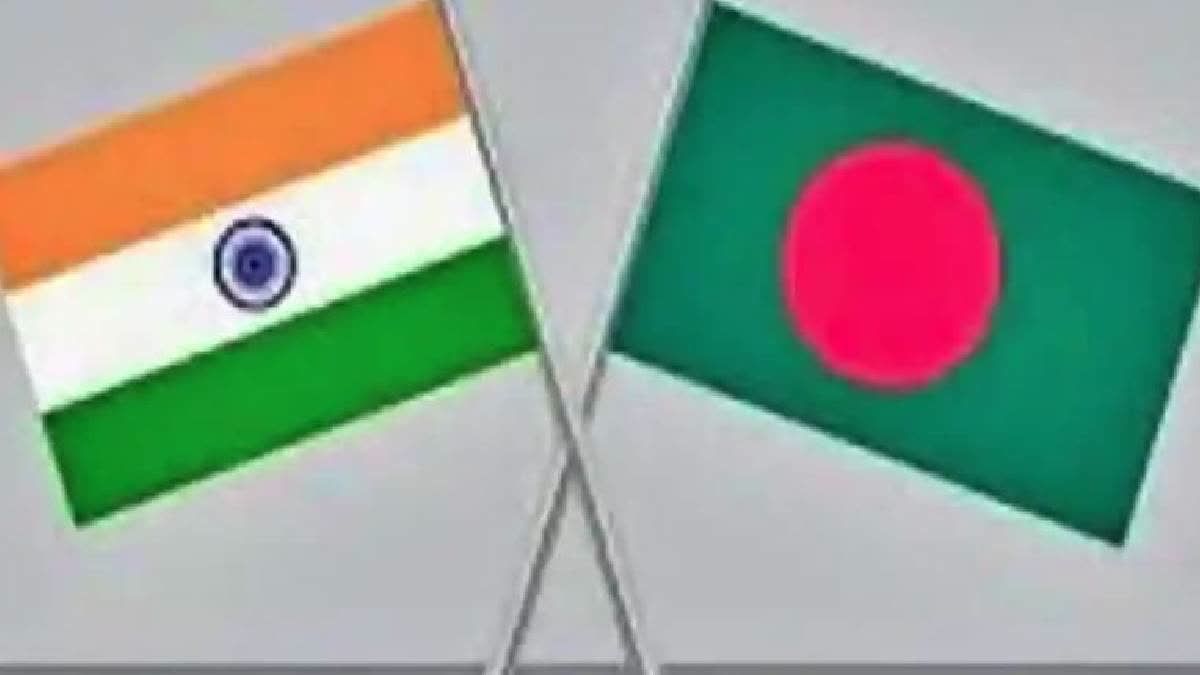New Delhi: The return of Sheikh Hasina to power as the Prime Minister of Bangladesh following the Awami League’s victory in the parliamentary elections held earlier this month has ignited a renewed spirit of collaboration between India and its eastern neighbour.
This was manifested in a couple of meetings Indian High Commissioner to Bangladesh Pranay Verma held with newly appointed ministers during a visit to the Bangladesh Secretariat on Thursday. These collaborative efforts between India and Bangladesh hold the promise of not only enhancing economic cooperation but also fostering cultural exchanges and people-to-people ties.
On such instance of boosting people-to-people ties is Bangladesh Minister of State for Commerce Ahsanul Islam putting forth a proposal to Verma to encourage the people of India’s seven northeastern states to use Dhaka’s Hazarat Shahjalal International Airport for traveling to international destinations.
According to a press release issued by the Commerce Ministry, Islam highlighted that the Government of India can play a crucial role in implementing this proposal. This apart, the minister also stressed on the need to improve the communication system linking India’s northeastern states with Bangladesh to boost the export of various Bangladeshi products like handicrafts, electronics, jute, leather goods, and food items.
At the same time, Islam also stressed on the need to sign a memorandum of understanding (MoU) with India for the import of essential items during emergencies. “The government of Bangladesh will hand over a list of essential items, especially onion, sugar, ginger and garlic, to the Indian government so that those items could be imported in urgent situations,” Islam said.
Another issue that came up for discussion was the opening of new border haats. The border haat serves as a unique trading post located on the Bangladesh–India border, jointly organised by the governments of both nations and held once a week. Beyond functioning as a market where locals and tourists can purchase daily necessities, it also serves as a reunification point for families residing on either side of the international border.
These border haats are designed to enhance the well-being of people living in remote border areas by establishing a traditional system for marketing local produce through local markets. Advocates of this policy assert that the border haats play a crucial role in promoting bilateral people-to-people international relations, revitalising the local economy, generating employment, and offering a diverse range of quality goods at more affordable prices, especially in the isolated border regions.
At present, there are seven border haats along the India-Bangladesh border. According to the Commerce Ministry press release, Islam and High Commissioner Verma agreed to jointly inaugurate a new border haat at Moulvibazar in Sylhet district of northeastern Bangladesh.
Verma also stressed on the importance of boosting communication between businessmen of India and Bangladesh. He also suggested organising a ‘Best of Bangladeshi Products’ event in India and a similar ‘Best of Indian Products’ in Bangladesh to ensure product diversification of both the countries and thus boosting imports and exports.
It is worth mentioning that Bangladesh is India’s biggest trade partner in South Asia and India is the second biggest trade partner of Bangladesh in Asia. Despite COVID-19 related disruptions, bilateral trade grew at an unprecedented rate of almost 44 percent from $10.78 billion in financial year 2020-21 to $18.14 billion in financial year 2021-22. Exports to Bangladesh touched above $16 billion as against $9.6 billion the previous financial year.
However, according to the External Affairs Ministry, in the financial year 2022-2023, the repercussions of the Russia-Ukraine war have also been felt on the bilateral trade and the exports dropped to $12.20 billion. The total India-Bangladesh trade stood at $15.93 billion in financial year 2022-2023.
During his visit to the Bangladesh Secretariat, Verma also made a courtesy call to new Environment, Forest and Climate Change Minister Saber Hossain Chowdhury. During the meeting, both sides agreed to work together on prevention of wildlife trafficking.
“The implementation of the protocol signed between Bangladesh and India on tiger conservation and the activities of the joint working group of the two countries on the conservation of the Sundarbans will be strengthened,” the Dhaka Tribune quoted Chowdhury as saying after the meeting.
The two sides also agreed to work together in the fight against climate change. “Implementation of the Mujib Climate Prosperity Plan and National Adaptation Plan will also be done simultaneously,” Chowdhury said.
The Mujib Climate Prosperity Plan is a strategic initiative that aims to transform Bangladesh’s future by moving it away from a vulnerable state towards one of resilience and prosperity. The Plan has a long-term perspective that goes beyond 2040 to mid-century, in line with the Climate Vulnerable Forum Vision and the Paris Agreement.
It is a comprehensive strategy designed to steer Bangladesh toward a sustainable and low-carbon future. It encompasses a range of initiatives and measures that prioritise economic growth while simultaneously reducing greenhouse gas emissions and strengthening the country’s ability to cope with the effects of climate change.
The goal is to achieve a significant increase in the use of renewable energy sources, aiming for 30 percent by 2030 and at least 40 percent by 2041. Chowdhury also said that Bangladesh and India will also work together in marine biodiversity conservation, eco-tourism and capacity building.
The Bangladeshi ministers’ meetings with High Commissioner Verma are also in consonance with the Awami League’s manifesto released ahead of the elections wherein the party had promised to further boost bilateral ties with India if it retains power.
The manifesto makes specific mention about India-Bangladesh relations stating: “The long-standing problem of demarcation of land boundaries and exchange of enclaves with India has been resolved. This achievement has encouraged continued multilateral cooperation and friendly relations with India.”
According to the manifesto, cooperation with India will continue in the areas of bilateral trade and security.
Verma’s meetings in the Bangladesh Secretariat came ahead of new Bangladesh Foreign Minister Hasan Mahmud’s maiden bilateral visit to India scheduled in February.
Read more



